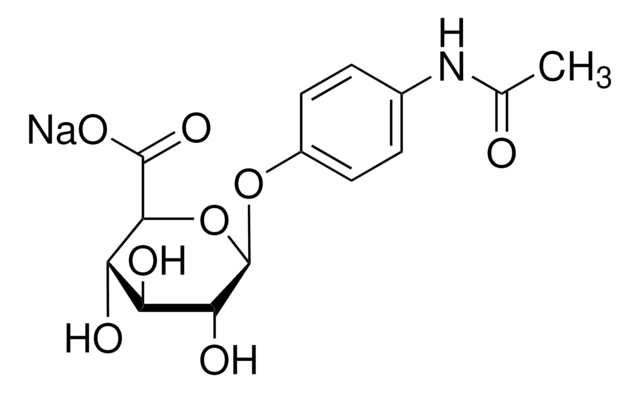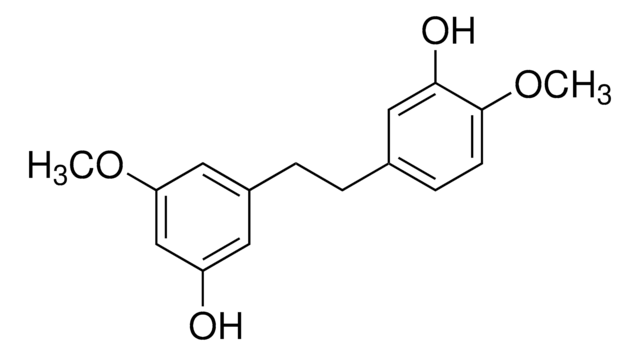04646
Hamamelitannin
≥98.0% (HPLC)
Synonym(s):
2-C-(Hydroxymethyl)-D-ribofuranose 2′,5-digallate, Hamamelofuranose 2′,5-digallate
About This Item
Recommended Products
Quality Level
Assay
≥98.0% (HPLC)
form
powder or crystals
application(s)
food and beverages
metabolomics
vitamins, nutraceuticals, and natural products
storage temp.
2-8°C
SMILES string
OC1O[C@H](COC(=O)c2cc(O)c(O)c(O)c2)[C@@H](O)[C@]1(O)COC(=O)c3cc(O)c(O)c(O)c3
InChI
1S/C20H20O14/c21-9-1-7(2-10(22)14(9)25)17(28)32-5-13-16(27)20(31,19(30)34-13)6-33-18(29)8-3-11(23)15(26)12(24)4-8/h1-4,13,16,19,21-27,30-31H,5-6H2/t13-,16-,19?,20-/m1/s1
InChI key
FEPAFOYQTIEEIS-IZUGRSKYSA-N
Looking for similar products? Visit Product Comparison Guide
General description
Application
Storage Class Code
11 - Combustible Solids
WGK
WGK 3
Flash Point(F)
Not applicable
Flash Point(C)
Not applicable
Personal Protective Equipment
Choose from one of the most recent versions:
Already Own This Product?
Find documentation for the products that you have recently purchased in the Document Library.
Our team of scientists has experience in all areas of research including Life Science, Material Science, Chemical Synthesis, Chromatography, Analytical and many others.
Contact Technical Service








